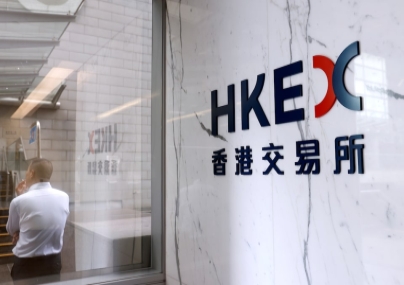
From big data to social media, the pharmaceutical industry has utilised the latest technological trends and is also moving towards digitalisation of various operations, while also being conscious of compliance in a heavily regulated industry. Corporate counsel at some of the top pharma companies share trends they’ve been seeing, the work that keeps them busiest, and how external counsel can help.
Though the pharmaceutical industry is heavily regulated and its companies are perceived as slow-moving giants, many have been keeping up with the latest technological trends.
For example, social media has been used by pharmaceuticals to share the latest news and updates on potentially life-saving scientific advancements and medical innovations – to people around the world more quickly and widely.
What hasn’t changed much is the legal work, which has remained business-as-usual for the most part, and counting on their external counsel for specific expertise. And like in many other regulated industries, corporate counsel in pharma are being acutely conscious of compliance, as consumers and regulators alike expect the industry to have greater transparency and ethical standards.
Hwee Ping Chua
Managing Counsel of Asia Pacific, China & Japan
Merck Sharp and Dohme (MSD)
What trends are you seeing in the pharmaceutical industry, and how is it affecting your team?
The increasing use and reliance on technology and social media is taking the pharmaceutical industry through transformational changes. Traditional methods of interacting with stakeholders and customers are no longer viable. Everyone, patients and healthcare professionals alike, is turning to the internet for rapid access to information. In order to stay competitive and relevant, it has become imperative for the pharmaceutical industry to keep up with the pace of technology, and be much more innovative and open-minded in the way we do business, disseminate information and interact with stakeholders and society.
Lawyers and compliance professionals are historically not the fastest adopters of technology. However, we have come to realise that if we do not adapt and stay ahead of the game, we will lose our ability to contribute meaningfully and bring value to our organisation. We have therefore forced ourselves to get out of our comfort zones – to learn about the latest social media platforms and search engines, and train ourselves to think faster and differently from what we have done in the past. This is a significant mindset and cultural change for my team and me, but it is absolutely necessary and urgent.
What kind of legal work does your team do, and what does the team focus on?
Like most in-house teams in our region, we play the role of general practitioners – meaning we take on legal work that spans a very wide scope. Within any given day, we could be working on a transactional contract, performing due diligence reviews of third-party vendors/partners, handling labour law disputes, advising on competition laws and privacy matters, and reviewing new marketing/innovative initiatives.
Apart from legal work, my team and I also spend a lot of time providing compliance advice, focusing primarily on ethical business practices, corruption risks and corporate integrity. Within MSD, we have had an integrated legal and compliance organisation since 2015. What this means is that every attorney on the team is expected to take on the responsibility of providing compliance counsel and support to the business on a regular basis. This is, in fact, a significant portion of the workload for the team, given the highly regulated industry we are in and the high-risk market environments we operate in within this region.
Who are your external counsel, and what kind of work do you use them for?
We select external counsel based on the specific areas of expertise needed for each assignment. We maintain a healthy panel of law firms, ranging from large international law firms to smaller outfits that are strong in particular areas of legal practice in the local market.
While most of the legal and compliance work can be done in-house by my team, we rely on external counsel’s expertise and support on more complex and specialised areas of law like competition law, privacy, complex investigations and litigation, significant corporate transactions and new regulations that may impact our operations.
We view our external counsel as an extension of our team, not just a service provider. We go through a careful selection process, to ensure that there is a good mutual understanding of expectations and shared accountability and success, in the work our selected external counsel are engaged to perform. Through this selection process, we typically end up using a firm that subscribes to a similar philosophy.
What are some of the biggest opportunities and challenges you’re currently facing?
We are a research-based company. Our mission is to invent for life – to bring innovative medicines to patients around the world. In this social media age, we have a great opportunity to bring scientific advancements and medical innovations to the world much more quickly and effectively. This will, in turn, enable many more people to have access to new and important medicines and treatment in a rapid and timely manner.
However, this is an unchartered and untested territory, and the laws and regulations governing these areas may not necessarily keep up, and they remain largely ambiguous and uncertain. The opportunity, therefore, presents significant risks to companies like ours as well.
Despite the uncertainties in the legal environment, one thing is clear. Our work, as an in-house legal and compliance team, can no longer be based purely on past practices that are tried and tested. We need to be creative and nimble, but yet vigilant and prudent, so that we can support the organisation in bringing greater value to people in this technological age, in a compliant manner and without in any way compromising our ethical standards. This is no mean task, but I believe it is certainly achievable with the right mindset, corporate culture and support from the top.
Hiromi Furushima
Head of Legal/IP Japan and General Counsel
Novartis Pharma K.K.
What trends are you seeing in the pharmaceutical industry, and how is it affecting your team?
First, when it comes to digital transformation, the pharmaceutical industry is no exception. We started exploring the opportunity to use big data and digital technology from drug development to commercial activities as well as back-office work so that we can deliver innovative products with improved productivity.
Second, to make healthcare more patient-centred, the industry has been more focused on how to improve patient engagement and patient experience. We are becoming more active in introducing patient awareness programmes, patient support programmes, and increased interaction with patient organisations.
Last but not least, ethics and compliance remain a priority, as society is expecting the industry greater transparency and ethical standards.
All of the above trends affect our team to deal with uncertainty and "go-beyond legal" because laws and regulations, or industry standard have not been established in many of those areas. In-depth understanding of business, and skills to take smart risks, are needed more than before.
What kind of legal work does your team do, and what does the team focus on?
Our team does a wide variety of legal-related work, including contract drafting and negotiation, providing legal advice, managing litigations, and giving legal training to associates.
The team now focuses more on addressing the trends mentioned in the response above, by proactive involvement in the early stage of the business discussion so that the team may provide more valuable advice to the business. The other area of focus is to streamline various legal processes, while adequately managing and mitigating risks. Emerging digital technology is expected to be helpful in simplifying such procedures, and once accomplished, this will help us to focus more on value-added work.
Who are your external counsel, and what kind of work do you use them for?
Much of our legal work is done internally. We retain external counsel for the matters which require extensive resources or particular expertise, such as litigation, mergers and acquisitions, and issues related to labour, antitrust and patents.
What are some of the biggest opportunities and challenges you’re currently facing?
We see a lot of opportunities and challenges in patent strategy. Recent court cases have increased uncertainty in patent term extensions and patent linkage systems, but we are required to make business decisions under such circumstances.
Also, as mentioned earlier, digital transformation would give us further opportunity to support the business, as well as help to accelerate the productivity of our work.
Hajime Seki
Head of Legal, Japan
Sanofi
What trends are you seeing in the pharmaceutical industry, and how is it affecting your team?
From my perspective, there are three key trends in the pharmaceutical industry. First is innovation: The pharmaceutical industry is innovation-driven, but recently that aspect has been expanding beyond new drugs discovery. A good example of this trend is the digitalisation in R&D, manufacturing, sales & marketing and any other activities. It has also materialised in the form of collaboration with a technology company to develop innovative new solutions, as well as share skills and expertise. Our capability and expertise must also be modernised to adapt to the trend.
Second is strategic deals. It is happening in different shapes and forms – not only M&A, but also joint ventures, out/in-licensing, co-commercialisation, etc. We have to be well equipped to provide high-quality support for all kinds of transactions.
Third is compliance. Given many scandals at pharmaceutical companies with respect to, in particular, interactions with healthcare professionals over the past several years, further transparency and regulations are required throughout the industry. We, therefore, need to stay abreast of evolving laws and regulations in the industry and updating the company’s policy and operation as appropriate.
What kind of legal work does your team do, and what does the team focus on?
My team delivers legal advisory and support services with respect to all kinds of legal matters, including contract drafting and negotiation, dispute resolution, and advice on strategic deals in connection with operations and activities by the Sanofi Japan Group.
Further, in order to establish effective risk management within the group, the team works closely with compliance teams in connection with issues involving anti-corruption policy matters, and compliance training for executives and employees. With the aim of being a true business partner for our internal clients, the team commits itself to be proactive so it can identify risks and opportunities early.
Who are your external counsel, and what kind of work do you use them for?
As my team is made up of talented lawyers with diverse experience, we do most of our work in-house. If a case has a complex or high-risk nature or requires specialised legal advice, however, we work with domestic or international firms depending on their expertise and capability.
What are some of the biggest opportunities and challenges you’re currently facing?
The pharmaceutical industry is very dynamic and diverse, and always has a variety of legal and compliance related issues at each stage of its value chain. It, therefore, provides more opportunities to develop true business lawyers.
On the other hand, in-house legal departments are increasingly expected to be streamlined and operationally effective. Using technology and innovations is inevitable. It also requires further simplification of operational processes and focusing more on high-value work. This is a big challenge but at the same time, it is a big opportunity for in-house lawyers as well as in-house legal departments.
To contact the editorial team, please email ALBEditor@thomsonreuters.com.



